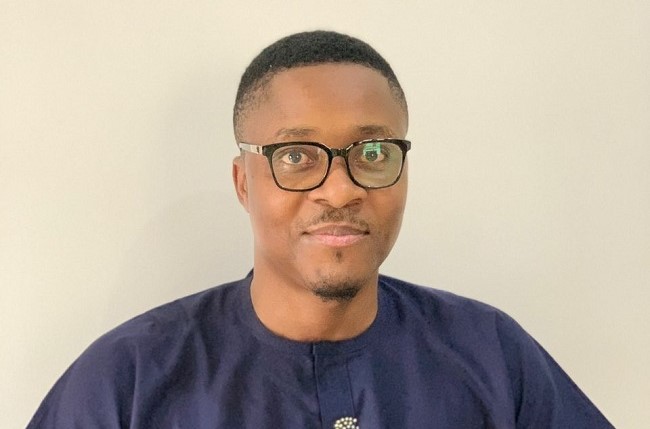– Advertisement –
By virtue of the ratification of the Paris Accord on Climate Change, Parties to the agreement are mandated by the provisions of Article 4 paragraph 2, to submit and implement national climate change commitments popularly known as Nationally Determined Contributions or NDCs. These NDCs are to be communicated to the United Nations Framework Convention on Climate Change (UNFCCC) by Parties every five years and must remain progressive and aligned to meeting the Paris goal of 1.5 degrees Celsius. The progressive nature of the NDCs mean that every Party’s succeeding NDCs cannot be lower in ambition to its preceding one.


In line with these stipulations, two cycles of NDCs were due by 2020 (extended to 2021 due to the COVID-19 pandemic). Many have said that the first NDCs, known as the INDCs (Intended Nationally Determined Contributions), submitted between 2015 to 2016 were largely perfunctory for many developing countries. This extended by some measures to the second iteration of NDCs (NDCs 2.0) with developing countries often engaging consultants to develop them with little or no consultations with stakeholders.
As efforts towards the submission of the third iteration of NDCs (NDCs 3.0) began, several developments are influencing the trajectory of the process. The most important one is the first Global Stocktake which accorded Parties the opportunity to x-ray their commitments, implementation status, and holistically evaluate what has worked, what has not worked, and self-appraise on whether those commitments and their implementations are aligned with the 1.5 degrees mission.
Secondly, the Sixth Synthesis Report (AR6) of the Intergovernmental Panel on Climate Change (IPCC) released in 2023, and the 2023 Emissions Gap Report re-affirmed that current ambitions are way off-target. Specifically, the Emissions Gap Report showed that implementing the unconditional NDCs and the conditional NDCs will keep the world on track for 2.9°C and 2.5°C respectively – a huge deviation from the Paris goal of 1.5 degrees.
But how does this concern Africa?
Many have off-handedly said that Africa has bigger problems than climate change, and gone on to mention hunger, lack of access to energy, insecurity, “natural disasters”, as more pressing problems facing the continent. A common quip in Nigeria is: “Na climate change we go chop?” Which loosely translates to whether climate change would tackle the hunger in the land. Yet, a careful examination of these “core African problems” reveals an intersection between them and climate change, and more importantly, points to how leveraging climate action can equally address these long-standing problems collectively.
At the risk of being too simplistic, there are ways through which climate action can address the many “core problems” of Africa. For instance, sustainable agricultural practices, one which recognises the changing climate, can largely contribute to addressing food insecurity and hunger. Building her energy access on renewables is an important pathway to erase decades of continued lack of energy access, leveraging on new technologies, bourgeoning investment opportunities on renewables, and natural resources available.
The current spate of disasters in the continent, including flooding, drought, desertification, etc., can be addressed by mainstreaming disaster preparedness into climate and development plans at every level of governance. These actions, which can be built into the next NDCs reflect a critical intersection between robust NDCs 3.0 and Africa’s developmental priorities and needs. This, incidentally was not the case with other iterations of NDCs.
Previous NDCs submitted by African countries have been riddled with several deficiencies. Overall, these deficiencies speak to weak climate governance structures and political will; limited consultation with stakeholders which has led to skewed submissions without the people’s buy-in; lack of implementation finance; insufficient incorporation of adaptation strategies; misalignment with national development agenda, among other issues. Addressing these in NDCs 3.0 will be important.
Indeed, NDCs 3.0 offer an interesting and unique opportunity in Africa’s journey towards sustainable growth while genuinely addressing myriads of problems that are stalling progress. Africa must therefore treat its NDCs 3.0 as not just a climate plan, but a full development plan, a business and investment plan, and a visionary framework towards attaining Africa’s Agenda 2063.
Interestingly, current global financial sector policies favour environmental, social, and governance (ESG) considerations with the threat of defunding and loss of businesses for companies that do not align with sustainable plans. This must be explored to build an economy which would address the continent’s lingering developmental challenges and position the continent on the path of sustainable growth and development.
It will thus be pertinent that in developing NDCs 3.0, pertinent questions are asked and the following taken into consideration by African countries:
- ensure that political ownership of the NDCs is engendered across government – national and local, and across different Ministries, Departments, and Agencies.
- align the NDCs with the national and local development priorities of the respective countries. This will help ensure that implementation is taken seriously.
- decentralise the implementation process across various strata of government, and even the private sector.
- structure the NDCs to optimise public finance as a means of unlocking international support and private sector confidence and investments.
- back the entire process with strong legal frameworks, policies, and legislative oversight.
While these recommendations are not exhaustive, they can serve as important guides to action for African countries. This is vital as Africa must approach NDCs 3.0 as its future strategic plan for sustainable development.
As the world gathers in Berlin for the Global NDC Conference, African participants must be vicariously aware of the importance of the next set of NDCs to Africa’s future and thus approach conversations there and at home with the singleness of purpose that this needs and a clear understanding that this could be a historic time for the continent.
By Nnaemeka Oruh, Senior Policy Analyst (Climate Change) at the Society for Planet and Prosperity (SPP). He is on X (formerly Twitter) as @_Oruhnc









